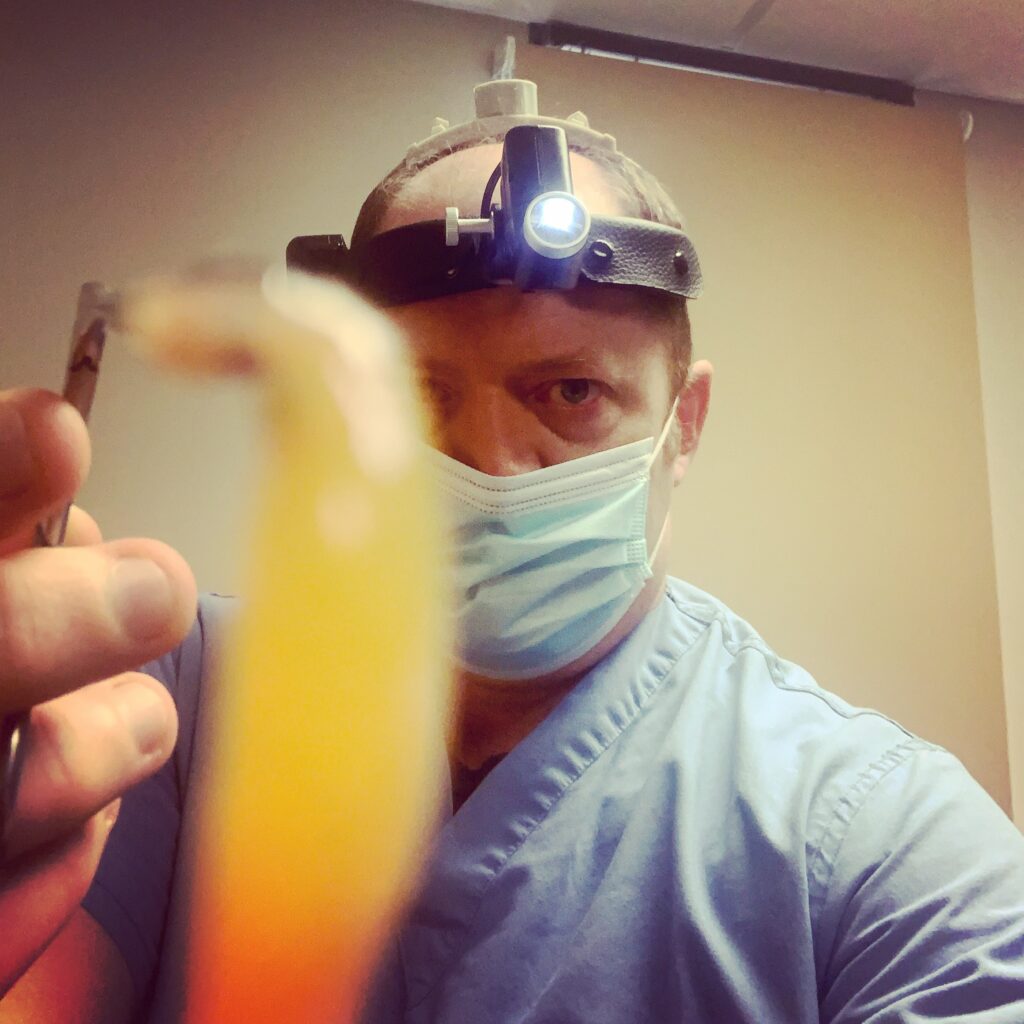Home >> Nose & Sinus > Nasal Polyposis Conditions
Sinus & Nasal Polyps

Nasal polyps are a special kind of nasal inflammation that are an exaggerated overgrowth of otherwise normal nasal tissue. Nasal polyps can get very large and obstruct the sinus tracts and breathing channels resulting the obstructed nasal breathing and chronic sinus infections. Polyps also may remodel and erode the bones of the skull base and eye sockets. Chronic sinusitis due to polyps represents about 15% of our sinusitis patients, but is far more likely than average to require surgery and long-term anti-inflammatory treatments.
Polyp-formers almost always require nasal steroids, strict allergy control, allergy immunotherapy and saline irrigations to have effective long-term control after sinus surgery. Most sinus patients with polyps wind up getting surgery, but some can manage by other means.
Fungal Sinusitis with Polyps
A special kind of allergy to certain fungal organisms results in fairly aggressive polyp overgrowth within the sinuses. Allergic Fungal Sinusitis (or Allergic Fungal Rhinosinusitis AFRS) is on a spectrum of fungal-related sinus diseases that affect otherwise healthy people. These polyps will produce thick pasty mucous and are very likely erode the bones within the sinuses (sometimes dramatic!). Allergy treatment directed at molds, in addition to nasal steroids are a must.
There are non-polyp Fungal Balls (mycetoma) that can affect the sinuses, but if a patient also develops a fungal allergic response the response can be a combination of polyps and fungal material build up. Then flareups can be caused by bacterial superinfection.
Eosinophil Inflammation
Eosinophils are a certain kind of immune system cell that fights certain infections and has been implicated in causing abnormal allergic-type inflammation in many patients. Some of the most difficult sinus and asthma cases are due to eosinophil over-activity. Surgical samples looked at under the microscope may show extra eosinophils, usually indicating someone who will need extra medical therapy after surgery to control things. Eosinophilic polyps are some of our most difficult cases!
Samter’s Triad, aka Aspirin-Sensitive Polyposis, aka Salicylate Sensitivity
A vigorous allergy to aspirin and related compounds (even trace related chemicals found naturally in some foods) causes a significant allergic response in some patients. This allergic response results in large nasal polyps and asthma. The allergic reactions may be low-grade and continual but often can be quite strong and even deadly.
Like other forms of polyposis, surgery and anti-inflammatory nasal steroids are a mainstay of treatment, and polyps are likely to eventually return one day. Absolute avoidance of aspirin and related compounds is very important (although some patients may benefit from aspirin desensitization therapy).
Asthma
Many patients with nasal polyps will also suffer from asthma, a breathing disorder of the lungs. Asthma requires separate treatment, sometimes on a daily basis. Many of the same kinds of medications are used to treat nasal symptoms and asthma.
New Monoclonal Antibody Therapy (“The biologics”)
As of this writing there are now three specific injectable therapies approved by the FDA for nasal polyps (dupilumab, benralizumab, and mepolizumab). This represents a major breakthrough in treatment of nasal polyps. These are taken every 2-4 weeks. These targeted protein therapies block certain pathways of inflammation. For some patients they have dramatic effects on improving polyps, breathing, and sense of smell. For some patients still they are not working. The treatments are meant to be long-term and are exceptionally expensive. Currently the standard of care is to try these medications if basic meds and initial surgery has been not completely successful.
